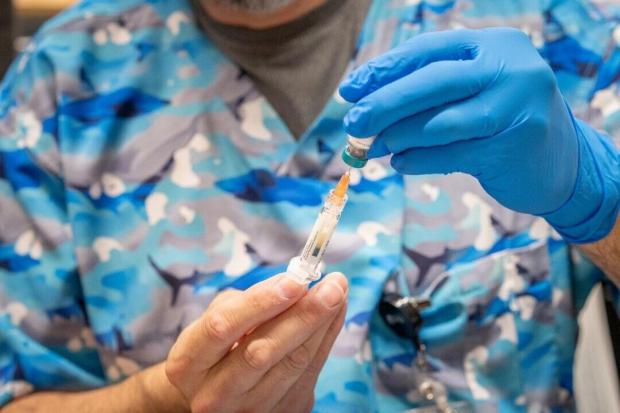
Breaking News
 Charlie Kirk was scheduled to speak at CSU in Fort Collins tonight, and 10,000 people turned out...
Charlie Kirk was scheduled to speak at CSU in Fort Collins tonight, and 10,000 people turned out...
 Watch This Fish "Drive" To His Mom To Get Treats | The Dodo
Watch This Fish "Drive" To His Mom To Get Treats | The Dodo
 Tennessee Becomes the First State to Require Gun Safety Courses in Schools
Tennessee Becomes the First State to Require Gun Safety Courses in Schools
 In a quiet lab in Vienna, a group of physicists ran an experiment in 2012 that should have been...
In a quiet lab in Vienna, a group of physicists ran an experiment in 2012 that should have been...
Top Tech News
 This "Printed" House Is Stronger Than You Think
This "Printed" House Is Stronger Than You Think
 Top Developers Increasingly Warn That AI Coding Produces Flaws And Risks
Top Developers Increasingly Warn That AI Coding Produces Flaws And Risks
 We finally integrated the tiny brains with computers and AI
We finally integrated the tiny brains with computers and AI
 Stylish Prefab Home Can Be 'Dropped' into Flooded Areas or Anywhere Housing is Needed
Stylish Prefab Home Can Be 'Dropped' into Flooded Areas or Anywhere Housing is Needed
 Energy Secretary Expects Fusion to Power the World in 8-15 Years
Energy Secretary Expects Fusion to Power the World in 8-15 Years
 ORNL tackles control challenges of nuclear rocket engines
ORNL tackles control challenges of nuclear rocket engines
 Tesla Megapack Keynote LIVE - TESLA is Making Transformers !!
Tesla Megapack Keynote LIVE - TESLA is Making Transformers !!
 Methylene chloride (CH2Cl?) and acetone (C?H?O) create a powerful paint remover...
Methylene chloride (CH2Cl?) and acetone (C?H?O) create a powerful paint remover...
 Engineer Builds His Own X-Ray After Hospital Charges Him $69K
Engineer Builds His Own X-Ray After Hospital Charges Him $69K
 Researchers create 2D nanomaterials with up to nine metals for extreme conditions
Researchers create 2D nanomaterials with up to nine metals for extreme conditions
CDC Advisers Recommend Against MMRV Combo Vaccine For Young Kids, Table Vote On Hep B Shot

The CDC should recommend only the measles, mumps, rubella (MMR) vaccine, and not the measles, mumps, rubella, varicella (MMRV) vaccine—which also prevents chicken pox—for children ages younger than 4, ACIP said.
The vote was 8 to 3. Dr. Robert Malone recused himself because he was in the past a paid expert for plaintiffs suing Merck, which manufactures MMR and MMRV vaccines.
If Jim O'Neill, the deputy health secretary and acting CDC director, accepts the recommendation, the CDC would change its vaccine schedule.
The CDC currently recommends either the MMRV vaccine, or the MMR vaccine along with a separate varicella shot, for the first dose against measles. It says the MMR vaccine is the preferred option for children ages 12 to 47 months, because the MMRV vaccine "is associated with a higher risk for fever and febrile seizures."
About 85 percent of children receive the MMR and varicella vaccines, compared with 15 percent who receive an MMRV vaccine, for the first dose.
After MMR vaccination, there is about one additional febrile seizure per 3,000 to 4,000 of those vaccinated, compared with unvaccinated children. MMRV vaccination increases that risk twofold among young children, Dr. John Su, a CDC immunization official, said in a presentation. There's no evidence of an increased risk following dose two of the MMRV vaccine among children ages 4 to 6, he said.
The second dose of a measles vaccine is recommended on the CDC schedule for children ages 4 to 6.
GlaxoSmithKline and Merck produce MMR vaccines cleared in the United States, but Merck also makes the only available MMRV vaccine. The companies did not respond to requests for comment by publication time.
"Any policy decision that compromises the clarity or consistency of vaccination guidance for MMRV has the potential to further diminish public confidence," a Merck official told the panel before the vote, after referencing falling vaccination rates among kindergartners.



